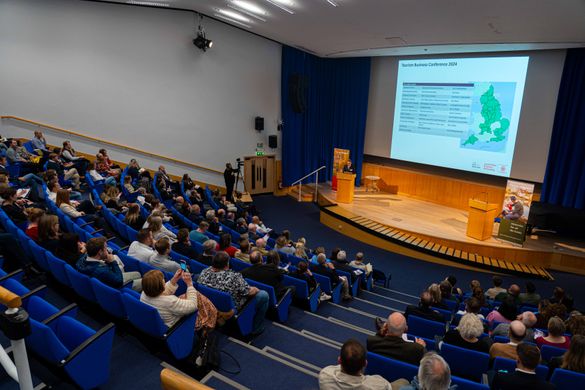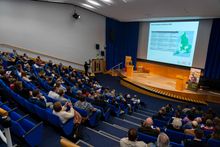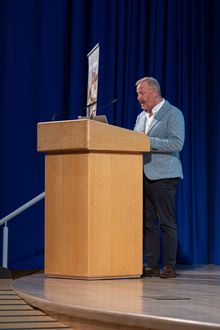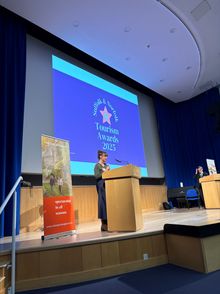 19 Oct 2024
19 Oct 2024
Tags: Norfolk, Suffolk, Visitengland, funding, Tourism, Vistor Economy, LVEP

How Suffolk and Norfolk can benefit from being a new Local Visitor Economy Partnership was the key theme of Visit East of England's Tourism Business Conference.
A strategic link to the national level, access to national initiatives, intelligence, business support and toolkits, creating wider regional partnerships, and the ability to bid for national funding were highlighted.
VEE Executive Director Pete Waters told the audience at the John Innes Centre, Norwich that stakeholders working together was the key to the two counties gaining national recognition as a VisitEngland accredited LVEP.
'The national tourism authorities told us they used to hear white noise coming out of this region, with lots of different organisations saying different things. Now they hear one collective voice and that has cemented us a seat at the national table,' Mr Waters told an audience of 200 representatives from businesses, local authorities and destination organisations.
LVEPs are part of a new England-wide structure of accredited tourism bodies, a key outcome of the 2020 DMO Review by now-VisitBritain chairman Nick de Bois. In future, only LVEPs will get support from the national tourist organisations and be able to bid into national funding opportunities. In the past six years, VEE has successfully bid for £720,000 of funds to promote Suffolk and Norfolk.
Mr Waters said the new arrangement was set to benefit Suffolk and Norfolk: 'Local authorities and destinations are working together to ensure we focus on the real stars in our tourism firmament, the businesses who underpin our combined £5.5bn visitor economy, employing more than 100,000 people. It's the largest sector and the biggest employer, and we want the new LVEP to lead to more visitors, more money being spent here, more employment and more wealth being created.'
Keith Blundell of Reith Consultants, who were commissioned by VEE, unveiled the first draft of a new Destination Management Plan (DMP), following a range of stakeholder engagement workshops, questionnaires and face-to-face interviews.
Mr Blundell said the DMP provided three main aims:
Grow the value of the visitor economy in a sustainable and responsible way, providing careers for local people and supporting local employment
Spread the benefits of tourism as wide as possible, seasonally and geographically, to the benefit of all
Manage the destination effectively, with productive partnerships, clear roles and responsibilities and an engaged private sector.
The conference began with workshops on Travel Trade by Vera Lett, Group Strategy Director of Tour Partner Group, and marketing tips from Rechenda Smith of Nurture Marketing, followed by a presentation by Debby McAllister, lecturer at University College Birmingham, on Artificial Intelligence in Tourism.
Keynote speaker was Bernard Donoghue, Chief Executive Officer of the Association of Large Visitor Attractions who gave an absorbing insight into
The event then pivoted to LVEPs, with an overview from Pete Waters, presentation on the Destination Management Plan by Reith Consultants, and then a detailed look at the national and international scenes and benefits of being an LVEP from Louise Bryce, Partnership Director at VisitBritain.
The day's presentations are here.











